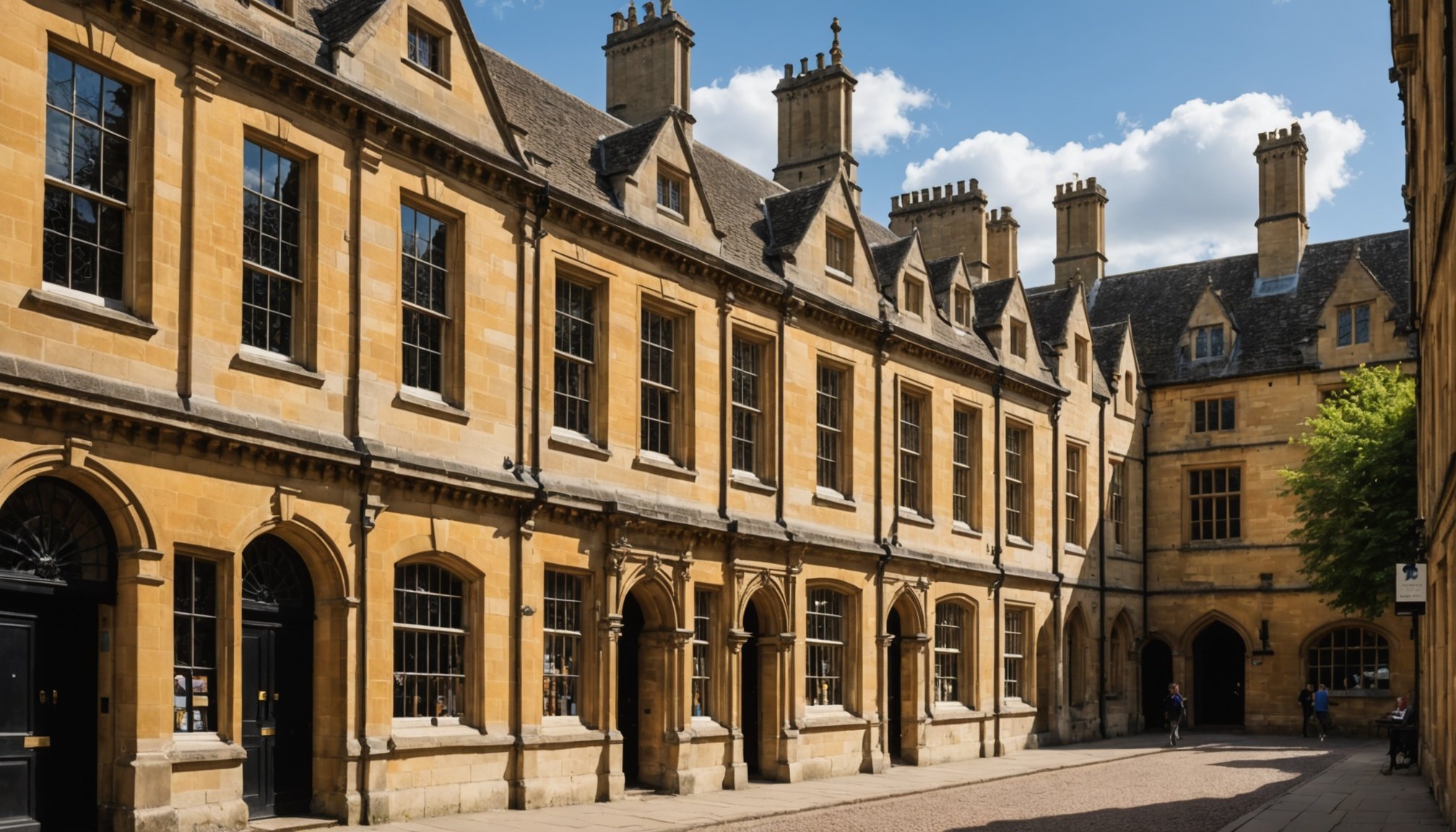Hidden Literary Sites in Oxford
Oxford is renowned for its association with grand libraries and institutions, but it also harbors hidden literary landmarks that are equally fascinating. These Oxford sites offer a more intimate experience of British literature’s rich tapestry.
Exploring overlooked libraries and reading rooms reveals a treasure trove of literary history. For example, tucked away in quiet corners, they possess rare collections and manuscripts that speak of the city’s enduring love for books. Such spaces offer a serene spot for reflection and a glimpse into the past that most visitors miss.
Also read : Uncover the wonders of british engineering history through engaging interactive workshops
Niche bookstores throughout Oxford serve not only as commercial spaces but as repositories of history. Many have stood the test of time, retaining their charm and significance through decades. The stories unfolded within their walls contribute to their unique character, inviting literary exploration beyond the mainstream.
Additionally, secret gardens and courtyards strewn across Oxford provide a tangible connection to famed authors. These spaces, often tied to literary figures, allow visitors to imagine the inspiration authors may have derived from their surroundings. Some gardens were favorites of writers, while others were spots of significant meetings and discussions.
Also to discover : Explore baths of caracalla tickets for a roman adventure
Engaging with these lesser-known sites enriches one’s understanding of Oxford’s literary exploration beyond its more famous landmarks.
Introduction to Oxford’s Literary Heritage
Oxford is a city steeped in literary history, often celebrated for its ability to nurture and inspire some of the most profound voices in British literature. Known globally as a hub of literary excellence, Oxford boasts of an illustrious past intertwined with the lives and works of many notable authors. It isn’t just the grandeur of its famous libraries that holds treasures; the city’s streets, nook, and crannies breathe life into tales of yesterday.
Literary sites in Oxford, although sometimes overshadowed by more mainstream attractions, serve as the veins that carry the rich legacy of storytelling. Their significance is not merely in their aesthetic or historical value, but also in how they connect the dots between Oxford’s past and the luminaries who have passed through its gates. The influence of Oxford’s history on its literary figures is profound; every cobblestone and ivy-clad wall whispers secrets of the stories penned within this enchanting landscape.
Exploration of these alternative landmarks allows an understanding of the rich tapestry that is Oxford’s literary heritage, inviting visitors to trace the footsteps of revered authors while basking in the environment that fueled their creativity.
Notable Authors Associated with Oxford
Oxford has been home to numerous influential literary figures, each leaving a distinct mark on the city’s rich tapestry. Renowned for its academic prestige, Oxford nurtured the creativity of these authors, whose works have resonated globally.
C.S. Lewis and the Inklings
C.S. Lewis, along with the renowned group The Inklings, frequently gathered at The Eagle and Child pub. This setting was pivotal for exchanging ideas and critiques that influenced their writings. Lewis, celebrated for “The Chronicles of Narnia,” found inspiration in Oxford’s intellectual environment. The collaborative spirit fostered by the Inklings played a crucial role in shaping Lewis’s literary journey.
J.R.R. Tolkien’s Oxford
J.R.R. Tolkien, famous for “The Lord of the Rings,” was deeply tied to Oxford. His tenure as a professor contributed significantly to his literary achievements. Tolkien’s walks through Oxford’s landscapes fired his imagination, weaving intricate worlds that have captivated generations. The city’s medieval charm resonated in his fictional settings, enriching his storytelling.
Famous Women Writers of Oxford
Oxford also sheltered outstanding women writers. Figures like Dorothy L. Sayers found encouragement in this scholarly haven. Her detective fiction, known for its wit, was enriched by her academic background. Oxford’s vibrant literary circles provided a nurturing ground for these women to voice their narratives.
Literary-Themed Activities and Events
Oxford is not just a city of historical significance; it also offers a vibrant array of literary events that celebrate its rich narrative traditions. These events provide an opportunity for visitors to deeply engage with the city’s literary heritage.
Every year, Oxford hosts numerous literary festivals that draw book lovers and authors from around the world. Such festivals feature an array of stimulating talks, book signings, and panel discussions, allowing attendees to immerse themselves in lively literary culture. These gatherings often highlight both contemporary voices and established figures, celebrating the ongoing evolution of British literature.
In addition to festivals, the city offers guided walking tours that focus on its literary history. These tours lead visitors through significant locations while sharing intriguing anecdotes about notable authors associated with the city. Participants can feel the resonance of stories past as they tread the same paths once walked by these literary figures.
To further enrich the experience, local authors frequently host workshops and talks, providing insights into their creative processes and encouraging budding writers. Such interactive sessions are designed to spark creativity and to offer practical tips and inspiration to attendees. Oxford’s literary events truly offer something for every enthusiast.
Practical Travel Tips for Literary Explorers
Exploring Oxford’s literary sites can be immensely rewarding with some practical tips. To truly immerse yourself, consider visiting in the spring or autumn. These seasons provide a pleasant climate, enhancing your experience in the city’s rich cultural tapestry.
Transportation around Oxford is conveniently supported by buses and bikes. Many literary landmarks are within walking distance, allowing for leisurely strolls amid quaint, historically significant streets. For those preferring guided experiences, author tours offer insightful narratives about Oxford’s storied past.
In planning your literary travel, it’s helpful to map out a thoughtful itinerary. Start with the iconic sites—libraries and bookstores. Allocate ample time for hidden gems like gardens and reading rooms, often less crowded and offering intimate historical insights.
When considering accessibility, remember that Oxford’s city centre is pedestrian-friendly, with many literary festivals situated close by key transport hubs. Ensure you carry a map, or use digital navigation tools, to maximize your experience.
These tips not only ensure a seamless visit but also allow you to absorb the literary heritage that Oxford uniquely offers. Whether exploring solo or with a group, an organized approach enriches every moment spent traversing this literary haven.











